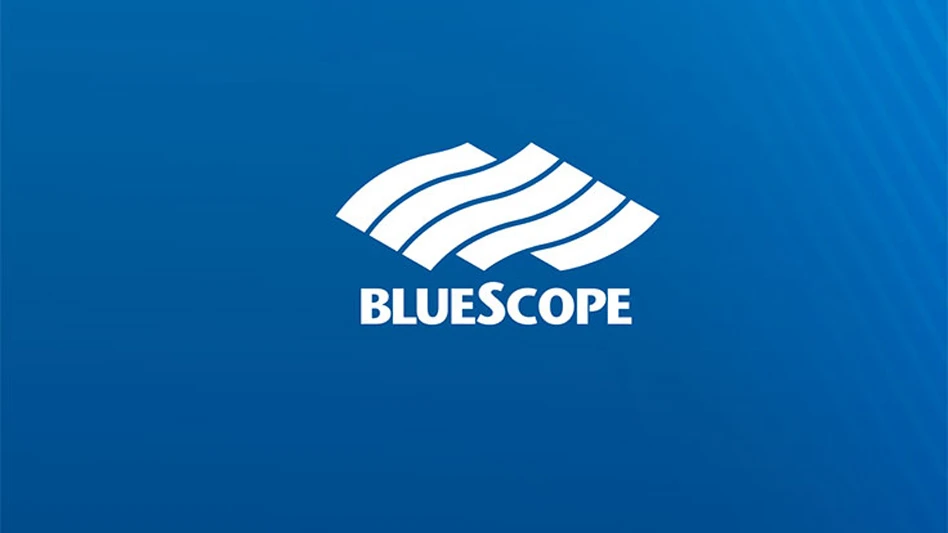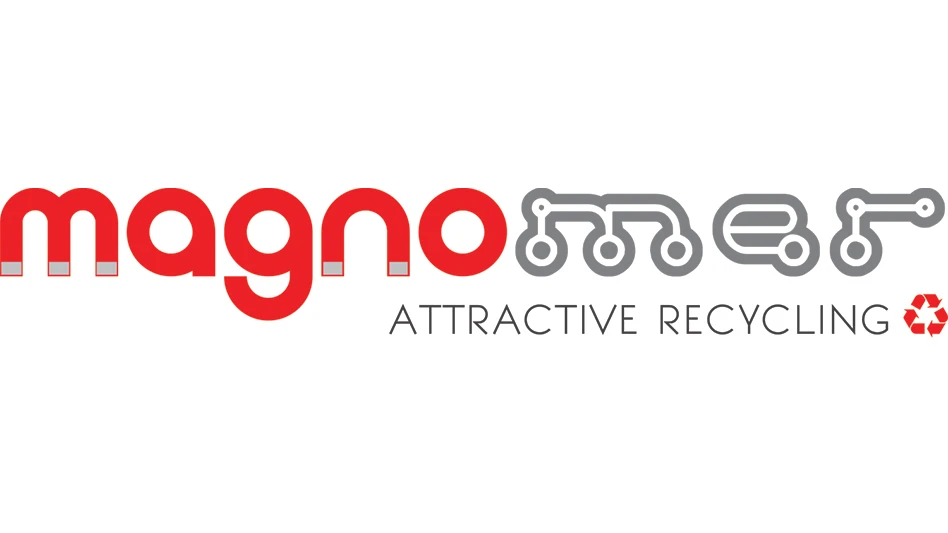GLASS PLANT OPENS IN GERMANY
A new glass recycling plant with the capacity to sort 250,000 tons of glass a year by color and type has opened in Velten, Germany, located near Berlin, according to recent reports in the Warmer Bulletin.
At a rate of 40 tons per hour, the new plant is able to automatically remove impurities — such as stones and metals — and also sort by color using a scanning device.
The scanner ejects incorrect colored pieces from the sorting line by means of compressed air.
Designers of the facility, Binder & Co., have expressed confidence in the plant’s ability to meet the country’s stringent quality control limits for glass cullet.
By Ger-many’s standards, ceramics, stones and other external contaminants must not exceed .002 percent.
In addition, color contamination in clear glass may not exceed .5 percent.
IRELAND STUDIES ONP USE IN FARMING
Ireland’s Department of the Environment and National Newspapers of Ireland have jointly launched a study to investigate the use of old newspaper for animal bedding.
The research will be conducted by the dairy husbandry division of Moor-park Research Station in Fermoy, Ireland, and will examine the animal health and welfare implications, as well as variouis practical, economic and environmental considerations.
An estimated 60,000 tons of newsprint is generated in Ireland annually, of which currently around 5,000 tons is recycled by the paper and board industry and a further 3,000 tons is ccurrently used for animal bedding.
MASSPIRG STUDIES NEWSPAPER RECYCLING
The Massachusetts Public Interest Research Group, Boston, has published the results of a survey comparing newspaper recycling programs in eight transit systems around North America. In releasing the report, MASSPIRG announced plans to work with the Massachusetts Bay Transit Authority to launch recycling programs in several MBTA stations this winter.
Getting on Track: Establishing a Newspaper Recycling Program in MBTA Subway Stations
includes both an analysis of the recycling program requirements of the MBTA system and the results of a waste audit of MBTA subway trash, showing the percent of newspaper in the transit system’s waste stream.The report also includes MASSPIRG’s recommendations to the MBTA regarding how to establish a successful, low-cost newspaper recycling program, starting with the pilot program launched this winter.
Key findings and recommendations in the report include:
•The average percent of the transit waste stream captured newspaper recycling programs in other systems is 23.1 percent by weight and 20.8 percent by volume.
•The amount of trash generated by the MBTA each year is 2,600 tons.
•The percent of newspaper in the MBTA waste stream is 28 percent by weight and 19 percent by volume.
•The number of bins needed for a system-wide newspaper recycling program in the MBTA is between 193 and 323, depending on whether the bins are placed on the platforms or by the entrances and exits.
MASSPIRG’s recommended full-scale newspaper recycling program, based on the current pilot program, would allow for voluntary collection arrangements with local municipalities and their curbside recycling contractors, and would rely on existing cleaning contractors to maintain the bins and periodically move the material to street level for collection. The proposed program would also include a newspaper recycling eductaion program for use in the stations served by the pilot program, and in the entire subway fleet.
In its report, MASSPIRG concludes that the evidence gathered "clearly shows that initiatives that are good for the environment can also be good for the MBTA’s bottom line."
EPA ASSISTANCE PROGRAM SCORES
The U.S. Environmental Protection Agency has met with volunteers from the Service Corps of Retired Executives to develop a joint program to offer management assistance to businesses involved in the recycling and reuse industries. Part of EPA’s Jobs Through Recycling Initiative, the program is aimed at encouraging growth and creating jobs in this emerging field.
"Recycling businesses have particular trouble finding financing," according to Ken Sandler, environmental protection specialist with EPA’s recycling and implementation branch.
"Many businesses need a boost with business principles and basics."
While EPA works with other groups to provide technical assistance to these businesses, a source for business expertise had been lacking prior to the program with SCORE, says Sandler.
SCORE, sponsored by the U.S. Small Business Administration, is a nationwide network of approximately 13,000 retired business owners and executives who volunteer their time and talents in support of the American small business community.
SCORE’s participation in the program will relate directly to its regular services, which include one-on-one counseling and workshops conducted by volunteer counselors for owners and potential owners of small businesses.
"The only real difference between this program and SCORE’s normal activity will be that we will be specifically reaching out to a segment of the small business community that we have not previously targeted," says Susan Bowser, director of special programs for SCORE.
The program is starting as a pilot in nine states: Deleware, Maryland, Arizona, Iowa, Nebraska, Ohio, Oklahoma, Oregon and the District of Columbia.
OIL CENTERS SURPASS 600
The number of certified used oil collection centers in California now exceeds 600, according to recent reports from the California Integrated Waste Management Board, Sacramento.
The used oil collection centers are designed to provide the public with convenient locations to turn in used motor oil and a safe, environmentally sound method for disposal, helping to deter illegal dumping.
Certified collection centers currently pay four cents a quart to people who bring in their used oil for recycling, providing an incentive.
The centers are reimbursed by the CIWMB with funding that comes from an assessment on primary oil sold in California.
During the first six months of 1994, CIWMB staff estimate that 58 percent of the used oil available for recovery in the state was recycled.
INDIANA AWARDS THREE LOANS
Indiana’s Recycling and Energy Development Board has awarded a total of $1.06 million in Recycling Promotion and Assistance Fund loans to Cycle-Masters, Cellulose Recycling Corp. and Resource Recycling Services Inc.
Cycle-Master, Sweetser, Ind., received a $164,050 loan. The company will double its current capacity and will use more than 3.1 million pounds of post-consumer plastic, such as milk jugs and industrial scrap, to manufacture recycled plastic products for semi-trailer manufacturers, the building forms industry, the agricultural sector and playground equipment producers. The cost of the project is $703,000.
Cellulose Recycling Corp., Charlestown, received a $500,000 loan. The new company will locate its operations at the Indiana Army Ammunition plant in Charlestown. CRC will recycle 15,000 tons of corrugated containers, newspapers, mixed paper and undeliverable U.S. postal service mail annually in order to manufacture a molded product called "Spaceboard."
This product will be lighter and stronger than wood pallets, as well as cost-competitive and recyclable. The cost of the project is $1.5 million.
Resource Recycling Services, Elkhart, Ind., received a $404,805 loan. The company will recycle 9,000 tons of fiberglass-reinforced product waste, a by-product of the recreational vehicle, boating and automotive industry. Recycled fiberglass product waste is used for friction material in brake pads and liners and sound-deadening material.
This project, which will save 90 million cubic yards of landfill space annually, has a cost of $1 million.
OREGON ISSUES RECYCLING BOOKS
Metro, Oregon’s regional government responsible for solid waste management and recycling, has published four booklets that list recycled products available from local suppliers. The books are being distributed to consumers and businesses in the Portlland area.
The illustrated "Shopper’s Guide to Buying Recycled" is aimed at consumers.
Three separate recycled products guides developed for business, governments and non-profit organizations list specific types of products: commercial and industrial, building and construction, and paper and office supplies.
CLARK COUNTY CURBSIDE LAUDED
A recent survey of home owners in Clark County, Ind., showed that almost three out of four approved of the job local solid waste officials were doing and felt they were accomplishing something with the county’s new curbside recycling program, according to reports from Clark County.
That was one of the conclusions reached in a telephone opinion poll conducted of 700 randomly-selected Clark County residents eligible for the county’s mandatory residential curbside recycling program. Residents indicated a desire for curbside recycling to be available for apartments, which the city hopes to provide on a pilot basis fairly early in 1995.
"The only real surprise was the relatively low interest in weekly pickup," says Jerry Fuller, director of the solid waste management district, "since every other week collection is one of the concerns we hear anecdotally."
S.F. RECYCLES PHONE BOOKS
San Francisco’s telephone book recycling program remains highly successful, according to program representatives. This fall, more than two million pounds of telephone books were collected in the city for recycling.
The 300,000 telephone books collected from commercial establishments this year was almost double last year’s total. A manufacturer of paper for Pacific Bell’s directories is recycling many of the directories into paper for new ones.

Explore the January 1995 Issue
Check out more from this issue and find your next story to read.
Latest from Recycling Today
- Haber raises $44M to expand to North America
- Canada Plastics Pact releases 2023-24 Impact Report
- Reconomy brands receive platinum ratings from EcoVadis
- Sortera Technologies ‘owning and operating’ aluminum sorting solutions
- IDTechEx sees electric-powered construction equipment growth
- Global steel output recedes in November
- Fitch Ratings sees reasons for steel optimism in 2025
- P+PB adds new board members





